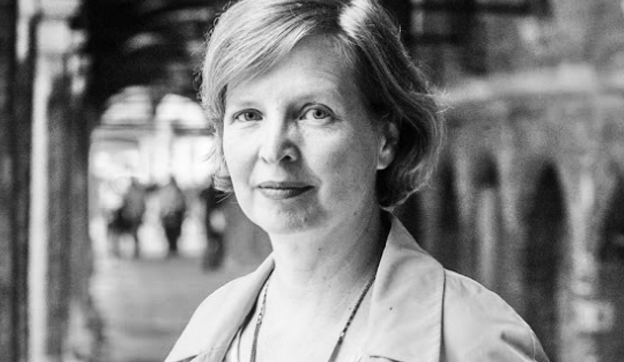THE PAST PRIZE LAUREATES

The Grand Laureate of the 5th Lee Hochul Literary Prize for Peace
Jenny Erpenbeck (1967~) Jenny Erpenbeck, who is a representative narrative German novelist of the 21st century, is a new generation of writers from East Germany, drawing attention for proving the potential of East German literature after the unification. With the unification as a momentum, German literature was restored as 'one literature' by removing the adjectives of division such as 'East' or 'West'. In a strict sense, East German literature can no longer exist from 1990 when East Germany was unilaterally merged into West Germany.
Due to the unification, the literary institutions of East Germany, such as writers’ associations, publishers, bookstores, literary criticism, and literary magazines, collapsed or were reorganized into a West German style; also, East German writers were thrown into a capitalist literary market overnight as the ‘literary society’ of East Germany, which had been promoting the social communication function of literature by the state policy, was completely dismantled. But the life of East German literature was persistent; the renown of East German writers, who were treated poorly at first, is now growing rather higher in the unified German literature. Particularly in this point, Jenny Erpenbeck stands out as a writer from East Germany.
Most of all, the strength of Erpenbeck’s writing lies in the sense of the critical balance that comes from her own experience of both socialism and capitalism. Not only is she aware of the problems of socialism in reality, but also has a dual perspective that enables her to criticize the limit of Western capitalism, distinguishing her from other West German writers. This ‘dual perspective’, which was crafted through a two-layered life with socialism and capitalism, is a medal bestowed to Erpenbeck by German history leading to the unification from the division. Meanwhile, her remarkable career after the unification also reminds us of the fact that the institutional integration of East and West German literary world did not directly lead to the unification of East and West German literature.

The Special Award Laureate of the 5th Lee Hochul Literary Prize for Peace
Sim Yun-kyung (1972~) Born in Seoul in 1972, Sim Yun-kyung graduated from Seoul National University, majoring in Molecular Biology and completed her master’s course at the same graduate school. After the graduation, she worked for some time and started writing a novel. Her career as a professional novelist had a momentum in 2002 when she received the 7th Hankyoreh Literary Award for her autobiographical novel, My Beautiful Garden.
In 2005, she won the 6th Muyeong Literary Award for her work Altar of the Moon, and published novels such as Love of Lee Hyun, People of Seorabeol, Love Runs, Love Fills, Seol-i, and fairy tale Reconciliation Report. Seol-i was her second autobiographical novel written in order to repay the debt she owes to Dong-gu, the hero of My Beautiful Garden, and to all the children of the world; with this work, she was among the finalists of the 3rd LLPP Special Award in 2019. In 2021, at last, Sim Yun-kyung was selected as the Special Award Laureate of the 5th LLPP with Eternal Heritage, her recent work which stands out for her outstanding historical imagination.


